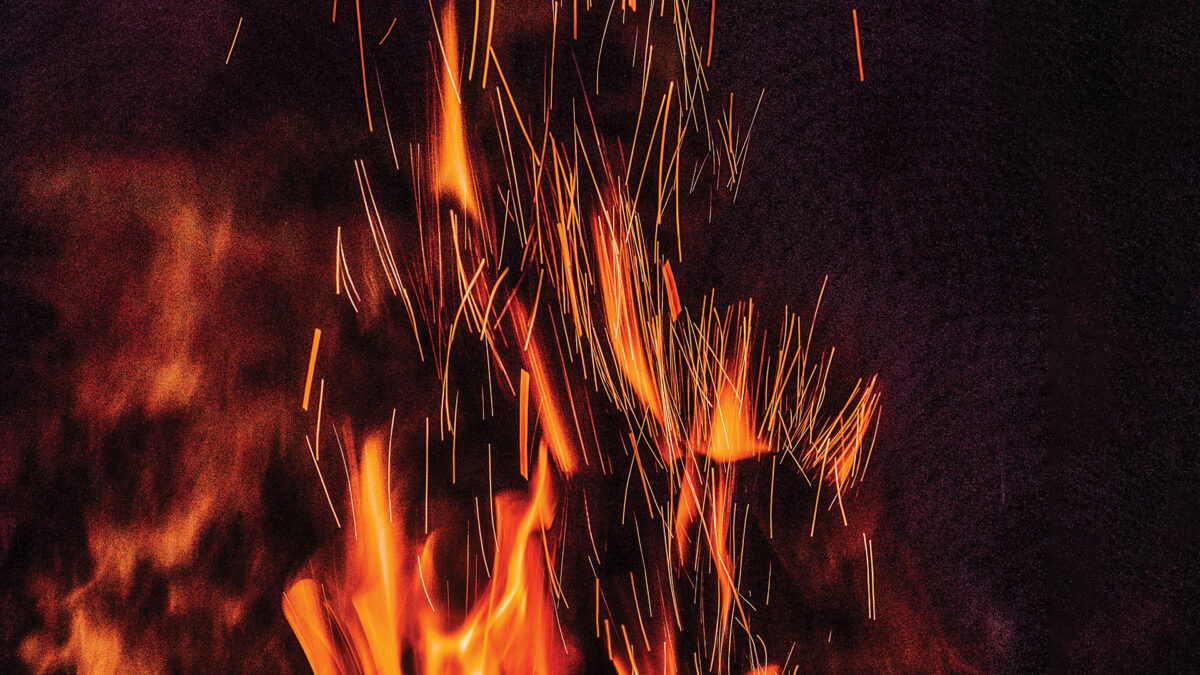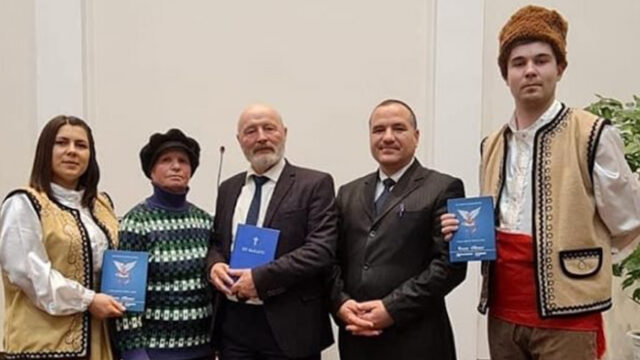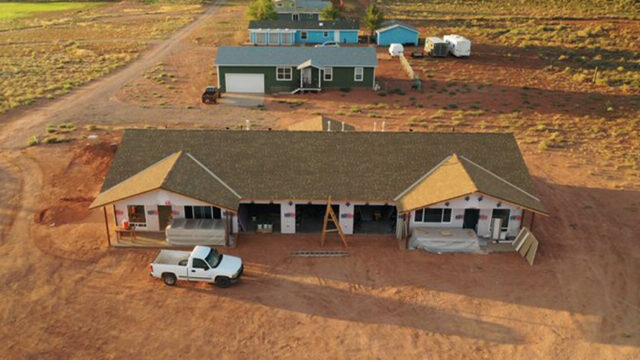We have nothing to fear.

It seemed as if everything changed overnight. What had been safe was no longer safe. Friends once trusted now became betrayers. Beliefs held dear were either renounced or a horrific death would surely follow.
That’s what happened to Thomas Hawkes, a kind and sincere man, loved and respected by all who knew him. Hawkes, a keen Bible student, was fortunate to live when it was possible to read the Bible in his mother tongue—English. Just a few decades earlier the great English scholar and Reformer William Tyndale had translated much of the Bible into the English language, opening a pathway for Bible truth to reach more people than ever before. With this enlightenment came reformation—the Protestant Reformation—to the British Isles.
But times were uncertain in mid-sixteenth-century England, and once Queen Mary (aka “Bloody Mary”) came to the throne, many who refused to give up their Protestant faith were martyred.
During this troubled time, Hawkes did not revert to the state-imposed religion of Roman Catholicism, but instead declined to attend Mass and spoke out against the religious regime. With the birth of his son, Hawkes refused to allow the infant to be baptized into the Catholic faith. This faithful man was summoned numerous times to answer for his biblical beliefs before the bishop of London, Edmund Bonner, known for his cruelty toward “heretics.”
After suffering in a cold, dank prison for months, Hawkes was given one last chance to recant. Instead, he replied to the bishop, “No, my lord, that I will not; for if I had a hundred bodies, I would suffer them all to be torn in pieces, rather than . . . recant.”¹
A SIGNAL
Doomed to die at the fiery stake, Thomas Hawkes spent his final days in prison receiving friends and family, many of whom would meet a similar fate. Impressed by Hawkes’ resolve, they asked if he would, as the flames leaped around him, give an indication “if the Christian faith and hope were stronger than the raging, consuming fire.”² Thomas agreed to give a signal if this was the case.
Soon the day arrived. Thomas was calm as he was led through the taunting, jeering crowd who came to see this “heretic” burn. He was tied to the stake by a strong chain about his middle, and after speaking to those gathered and pouring out his heart to God, the fire was kindled.
Foxe’s Book of Martyrs describes the scene: “When he had continued on in it [the fire], and his speech was taken away by violence of the flame, his skin drawn together, and his fingers consumed . . . so that it was thought that he was gone, suddenly and contrary to all expectation, this good man being mindful of his promise, reached up his hands burning in flames over his head to the living God, and with great rejoicings as it seemed, . . . clapped them three times together. A great shout followed this wonderful circumstance, and then this blessed martyr of Christ, sinking down in the fire, gave up his spirit, June 10, 1555.”³
How was it that Hawkes, and millions more like him, were able to face the most fearsome circumstances with peace and resolve? And how can we today, although we may not face a fiery stake, approach the unknown future with hope, confidence, and perfect peace?
NOTHING NEW
Fear is nothing new. Going all the way back to the Garden of Eden, we see Adam and Eve hiding, terrified to be seen. When God calls out to Adam, “Where are you?” we hear Adam exclaim, “I was afraid because I was naked; and I hid myself” (Gen. 3:9, 10).
Adam was afraid because he was “naked”—not just physically exposed, but naked in the sense that he had lost that pure connection with God. Being exposed to sin had robbed Adam and Eve of their innocence and peace.
“The knowledge of evil, the curse of sin, was all that the transgressors gained,” wrote Ellen White. “There was nothing poisonous in the fruit itself, and the sin was not merely in yielding to appetite. It was distrust of God’s goodness, disbelief of His word, and rejection of His authority, that made our first parents transgressors, and that brought into the world a knowledge of evil.”⁴
Fear is a natural part of living in this sinful world, but how often it comes from a distrust of God’s goodness, disbelief of His Word, and/or a rejection of His authority. Yet throughout the Bible God urges us to “fear not.”
“Say to those who are fearful-hearted, ‘Be strong, do not fear! Behold, your God will come, . . . He will come and save you’ ” (Isa. 35:4).
“But now, thus says the Lord, who created you . . . : ‘Fear not, for I have redeemed you; I have called you by your name; you are Mine” (Isa. 43:1).
“Fear not, O land; be glad and rejoice, for the Lord has done marvelous things!” (Joel 2:21).
In the New Testament we see terrified shepherds being told by a heavenly visitor: “Do not be afraid, for behold, I bring you good tidings of great joy which will be to all people” (Luke 2:10).
Jesus assures us, “But the very hairs of your head are all numbered. Do not fear therefore; you are of more value than many sparrows” (Luke 12:7).
In the book of Revelation, we see Jesus touching John with His right hand, assuring him, “Do not be afraid; I am the First and the Last. I am He who lives, and was dead, and behold, I am alive forevermore. . . . And I have the keys of Hades and of Death” (Rev. 1:17, 18).
KNOWING HOW IT ENDS
During the past several months we have seen swift and massive changes throughout the world. It seems that nearly every country on earth has been affected by this global coronavirus pandemic. The financial fallout and other implications are still coming to light. People are afraid. No one knows exactly what the future holds, yet prophecy predicts that things will get worse before they get better—much better.
It is that “much better” that gives us hope. It’s the bigger picture—the cosmic conflict going on now—and knowing how it will end that helps us to hold on by faith. Jesus assures us that He will be with us through the fire, through the storm, through whatever we may face, so that we can say with confidence, “Whenever I am afraid, I will trust in You. . . . In God I have put my trust; I will not fear. What can flesh do to me?” (Ps. 56:3, 4).
And more than this: we can, through our example, encourage others to have faith, to have courage, knowing that the Christian hope and faith is stronger than any raging, consuming fire.
¹ “Thomas Hawkes, Coggeshall martyr,” Local Heroes, Coggeshall Museum, www.coggeshallmuseum.org.uk/localhero.htm.
² Ellen G. White, Testimonies for the Church (Mountain View, Calif.: Pacific Press Pub. Assn., 1948), vol. 1, p. 657.
³ John Foxe, Foxe’s Book of Martyrs, p. 222, www.gutenberg.org/files/22400/22400-h/22400-h.htm.
⁴ Ellen G. White, Education (Mountain View, Calif: Pacific Press Pub. Assn., 1903), p. 25. (Italics supplied.)








